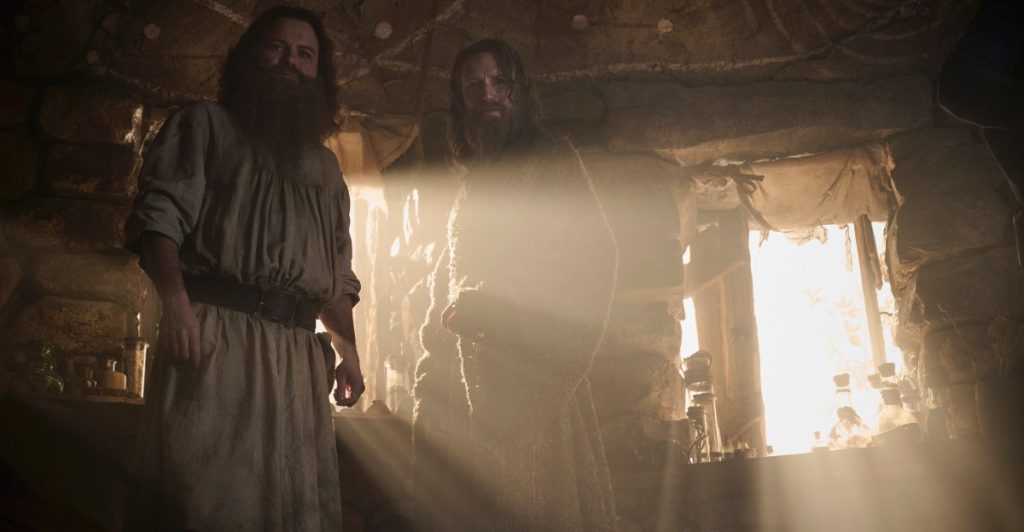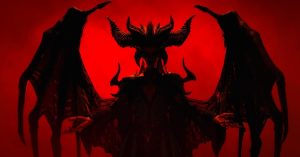
Tom Bombadil isn’t wholly knowable. That’s how he was introduced to me, someone who read the Lord of the Rings books a long time ago as a kid, and has since mostly fielded Bombadilisms via friends better versed in the world of Tolkien. But what I knew about him I loved: an appreciator of wit and whimsy; here for a good time, and a long time; wholly uninterested in the bigger picture of Middle-earth or seeking any (more) power over it. Like One-Punch Man before him (I kid, I kid, I know Bombadil’s time stretches back to possibly before the Valar themselves, and also 1954), Bombadil was overpowered and understimulated.
I knew that The Rings of Power wouldn’t be doing straight Bombadil — even Peter Jackson knew that was impossible. In interviews ahead of the season 2 premiere, the showrunners expressed that their Bombadil would be “5 or 10%” more useful than the character readers were familiar with. I could hear the wails of many in my extended network of trees and fantasy fans cry out that this defeated the purpose of Tom “Sitting This One Out” Bombadil. But I was willing to grant the show some room to strut. After all, a show with a five season plan to explore the expansive world of Middle-earth should be able to bring in an odd, semi-pointless celebrity cameo that a trilogy of movies had no time for.
But with two Bombadil episodes under our belt, I have to say: This was not the Bombadil I was promised.
For starters, I might quibble with exactly how aloof and goofy Tom Bombadil is (or isn’t) on The Rings of Power. He’s certainly got a way about him, but his logic isn’t that hard to follow or even all that loopy. It’s actually just helpful, while being just a little bit withholding.
Which brings me to perhaps the main problem: This man is way more than 5 to 10% more useful than I expected. He is not merely nudging the Stranger toward a lot of helpful places absentmindedly or with a twinkle in his eye; he’s sitting him down in his kitchen, feeding him Gandalf lines, and telling him this is the path to his fate. At the very least we’re looking at a cool 27%, and that’s before we even take into account the off-screen training regimen Bombadil has apparently been running for the series’ most famous wizard.
Like so much of The Rings of Power, you could make the case that this is not great Tolkien Adaptation work. But I think the problems are more fundamental than that. The Bombadil I was promised was a goof who refused the call; he might very well be nature itself, or a mysterious god plucked from another fictional world, glorious but uncaring toward your personal plight. He was the man, the myth, the legend who existed outside of time, space, and the inconveniences of plot. The Rings of Power’s Bombadil, by contrast, has the unfortunate trait of feeling entirely of his story. He may not be there to see the Stranger through to his “fate” or to see what happens with those rings across the way, but he is decidedly of the tale he is in: poorly written, a touch too somber, and far more interested in plot developments than he is in character.
It’s true that this isn’t the Bombadil Tolkien seemed to imagine. And I’d grant them the leniency to change the character if it felt like The Rings of Power’s Bombadil was serving the story the way you’d hope a few adaptational tweaks would — 5 to 10% more useful, but no less mysterious or disinterested despite his increased importance. But instead he’s receding into the wider world, in service of the needs of bad writing rather than the wants of whimsy.

















